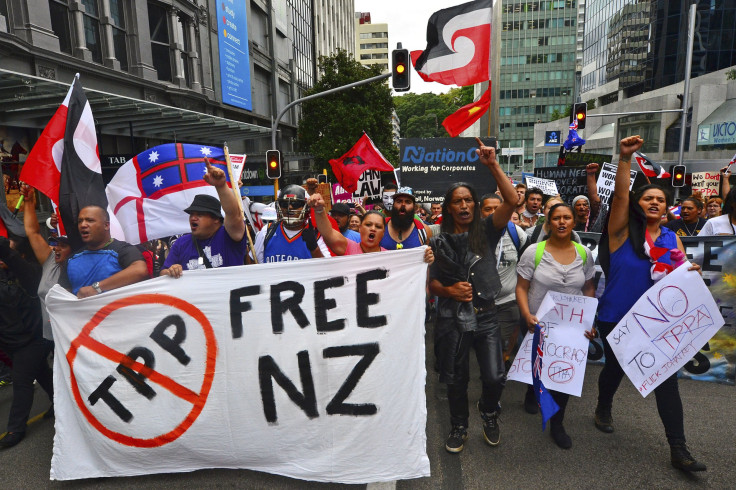Trans-Pacific Partnership Trade Deal Signed, But Not Yet Delivered

The 12 nations of the controversial Trans-Pacific Partnership (TPP) deal signed the agreement in the New Zealand city of Auckland. But the nations involved still need to agree to an official text before one of the largest trade deals ever can be implemented.
Video Transcript:
For protesters on the streets of Auckland, the TPPA means one thing: “Taking People’s Power Away.”
Not for politicians signing the deal nearby though. They say the Trans Pacific Partnership Agreement is a chance to grow world economies — it covers 40 percent of them — making it one of the largest trade deals ever. But it’s still years away, at least six countries are yet to approve the final text, including New Zealand.
“TPP is still just a piece of paper, or rather over 16,000 pieces of paper until it actually comes into force,” said John Key, New Zealand’s prime minister. “To make the economic opportunities of TPP a reality for our businesses and our consumers, our investors and our workers, we need to complete our respective domestic processes.”
And that’s likely to be a challenge. Proponents of the 12-nation deal say it’ll cut trade barriers and set common standards. But those against it say it will allow big corporations to charge more for things like medicine, and to sue governments over policies they don’t like.
Some opponents are in the U.S. government. Not a problem though, said U.S. Trade Representative Michael Froman. “I’m confident at the end of the day, because of the strong benefits to the U.S economy which have been estimated to be over $130 billion a year of GDP growth, that members of Congress will see the benefits for their constituents and will have the necessary bipartisan support to be approved.”
An uphill battle to pass the legislation is also likely in Australia, where opposition is growing.
Negotiations have already taken five years, it seems those behind it are likely to have to wait even longer.
© Copyright Thomson Reuters 2024. All rights reserved.





















